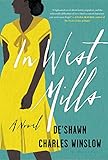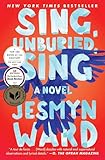I’m writing this on an overcast afternoon in uncertain times. Two hours ago, my youngest sister called to inform me of her positive COVID-19 test results, my sister who just had dinner with my mother and father two days earlier, my mother whose voice sounds hoarse over the phone and my father who has quarantined himself in the guest bedroom, both of whom will be getting tested tomorrow and, while not ancient, are most certainly seniors with pre-existing conditions, which means even more anxiety and worry and fear and anger and disgust and disappointment and dread in a year that seems, collectively, to have let all of us down.
Amid the uncertainty, however, is one thing I’m absolutely certain of: reading saved my sanity. Not the tweets, the breaking news blurbs, the protest signs, the think pieces, the text messages and emails that ended with some variation on the phrase “hope you are doing as well as one can in a time like this”—but the books. I clung to books this year for consolation, for escape, for solace, for comfort in a way I haven’t clung to them since I was an equally anxious and uncertain teenager. Quarantine, in a perverse way, made real my boyhood fantasy of doing nothing all day but reading. Now, I had all the time in the world; and with independent bookstores and a robust public library system, all the books.
As someone with a first novel coming out in February, much of my reading this year was focused on debut books. If those writers went through the gauntlet and survived, especially in such a terrible time, maybe I could, too. In reading them, I hoped to cobble together some haphazard sense of community, and I was fortunate to encounter work that was ferocious, inspiring, and, to be truthful, somewhat intimidating. I’m thinking in particular of De’Shawn Charles Winslow’s In West Mills, Crissy Van Meter’s Creatures, Peter Kispert’s I Know You Know Who I Am, and Douglas Stuart’s Shuggie Bain. Then there was Everywhere You Don’t Belong, by Gabriel Bump, and Real Life, by Brandon Taylor—which I read back-to-back, and which I think of as a pair because their joint reading in Washington, DC, in February was the last public reading I would attend.
During the second half of the year, with no more edits to make on my very gay novel, I felt free to catch up with queer writers I had either never read or had avoided out of fear their brilliance would make me second-guess my own work. I was wise to have waited, because I found myself continually enraptured by the authors I spent time with. There was my first book by Andrew Holleran, the melancholy and funereal The Beauty of Men; Giovanni’s Room by James Baldwin (I know, late to the party); Alexander Chee’s debut novel, Edinburgh (late to that party, as well); The Prettiest Star by Carter Sickels, after which I can never listen to David Bowie without thinking of his characters; Jeanette Winterson’s queering of Frankenstein and love affairs, respectively, in Frankissstein and Written on the Body; the tender, empowering poetry of Jericho Brown (The New Testament, The Tradition), Carl Phillips (Quiver of Arrows: Selected Poems, 1986-2006), and Henri Cole (Pierce the Skin: Selected Poems, 1982-2007); Robert Gluck’s erotic and delightfully blasphemous Margery Kempe; and the stories of If I Had Two Wings by the late Randall Kenan. And then, of course, there is Garth Greenwell, who I am convinced history will remember as one of America’s greatest prose stylists. Cleanness, a re-reading of What Belongs to You, an essay on “relevance” in Harper’s, his address to the 2019 graduating class at Bennington College Writing Seminars—all of them were life-affirming during a year when powerful factions in this country spoke of our lives (Black, queer, foreign) as so much rubbish.
In fact, so much of the literature I read this year succeeded where conservative politics continually fails: at empathy. At inhabiting other minds, other bodies, other experiences; at seeing the world through new eyes; at realizing we’re all in this together. We like to think we already grasp these facts, but all of us could stand to be reminded. Of particular help in this, for me, were Jesmyn Ward’s Salvage the Bones and Sing, Unburied Sing; Jean-Baptiste Del Amo’s Animalia; Amy Hempel’s short stories (especially “A Full-Service Shelter” from Sing to It); and The Nature of Things by Lucretius and The Work of the Dead: A Cultural History of Mortal Remains, by Thomas W. Lacquer, whose projects of cataloguing those twin mysteries of existence (Where do we come from? Where will we go?) seemed to suit the times, when days and months became indistinguishable, and all we could think about were the dead and dying.
Yes, I could have read more. I could have read differently. But what matters is that I read. Even still, did it do me any good? I wonder. As Olivia Laing reminds us in Funny Weather: Art in an Emergency, reading is vital to empathy—but it’s not enough.
Can art do anything, especially during periods of crisis? In 1967, George Steiner wrote a famous essay in which he observed that a concentration-camp commander could read Goethe and Rilke in the evening and still carry out his duties at Auschwitz in the morning, regarding this as evidence that art had failed in its highest function, to humanise. But this makes art sound like a magic bullet, which should reorganise our critical and moral faculties without effort, while simultaneously obliterating free will. Empathy is not something that happens to us when we read Dickens. It’s work. What art does is provide material with which to think: new registers, new spaces. After that, friend, it’s up to you.
Heading into another uncertain year—Who else in my family will get sick? When I can be a slut for hugs again? What, if any, success will my novel have? Will justice ever come for the current Thug in Chief and his cronies?—I’ll think of these words and continue doing the work that’s required of me. That’s required of us all.
More from A Year in Reading 2020
Don’t miss: A Year in Reading 2019, 2018, 2017, 2016, 2015, 2014, 2013, 2012, 2011, 2010, 2009, 2008, 2007, 2006, 2005

















